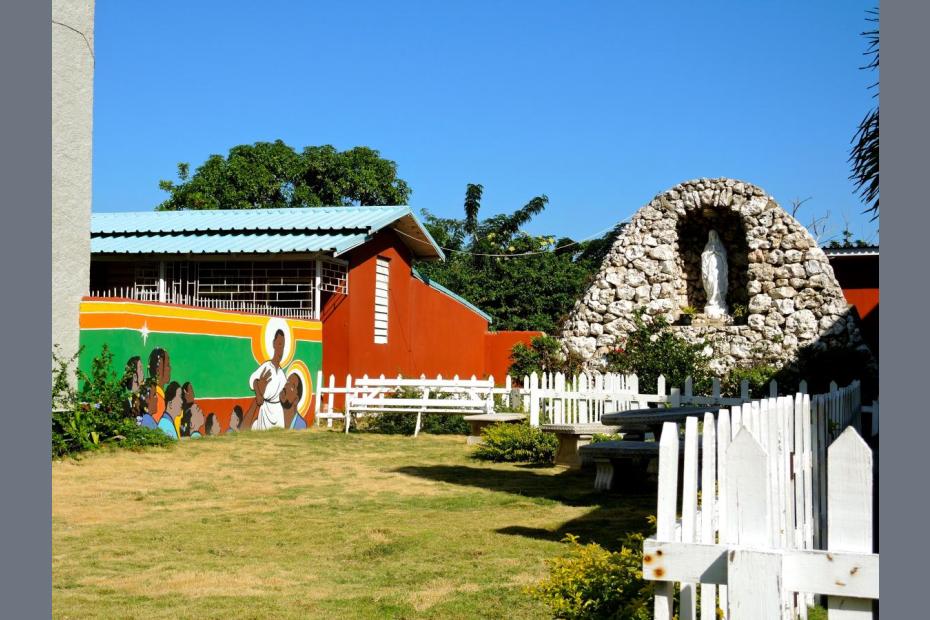Catholic belief in Jamaica is influenced by a set of Afro-Jamaican cultural beliefs about witchcraft, evil spirits, and possession. In interviews for this project, some Catholics denied that this belief system, known as Obeah, has any real personal or cultural influence — except in the parish (civil county) of St. Thomas, in the countryside generally, or among the old.
Many others laughed out loud when told that others had denied the influence of Obeah and said, “Don’t you believe it. If someone says that, they’re not telling the truth.”
Several claimed to have seen manifestations of evil spirits. Several others did not deny the reality of evil spirits and powers, only their capacity to control us if we ignore them and turn toward God. One engineer said, “I believe in good and evil, and choose to concentrate on the good, which gives less a chance for the evil to take hold of me… Evil only works if you let it.”
Lay people are not the only Jamaican Catholics to believe in Obeah’s power. At minimum, believers in Obeah have a palpable sense that there are forces of evil active in the world.
Obeah is a form of witchcraft with roots in West Africa, hybridized in a Jamaican context over hundreds of years.1 It has endured despite legal and moral attempts to suppress it. Obeah is not a religion in the sense that it has its own deities, but a set of ritual practices to influence the many spirits around us, or to cause bodily harm. A person wishing ill to another might consult a freelance Obeah man to put a spell on some person, often through herbs and potions, generally manifested as a physical malady. Obeah also includes ritual practices aimed to bring protection and good fortune, and hence is described by practitioners as something associated with good and evil powers; but in common practice among Catholics and in media accounts, it is mostly referred to as an evil power.
The human body harmed by that spell, or by spirits not properly treated after death, requires spiritual healing by another Obeah man, or often by Christian ministers, including Catholic priests. Despite an aversion to most Christian objects of devotion, Jamaicans often ask Catholic clergy for rosaries and holy water, for anointing with oil, or for a home visit with incense to dispel an Obeah curse. Others simply keep an open Bible in their homes.
A corollary to the Obeah belief system is belief in duppies – ghosts or evil spirits, usually the spirits of the recently dead, but also other spiritual entities – who can possess humans and cause other serious mischief in a community. Obeah men might be called to summon a duppy or to prevent harm from duppies, but so too are Catholic priests and Protestant ministers.
- 1Other versions of Obeah exist in other English-speaking Caribbean Islands and are paralleled by practices like Voodoo and Santeria in the French and Spanish Caribbean. A good general introduction to Obeah, with a broader Caribbean focus, is Margarite Fernández Olmos and Lizabeth Paravisini-Gebert, Creole Religions of the Caribbean: An Introduction from Vodou and Santeria to Obeah and Espiritismo, (New York University Press, 2003).
